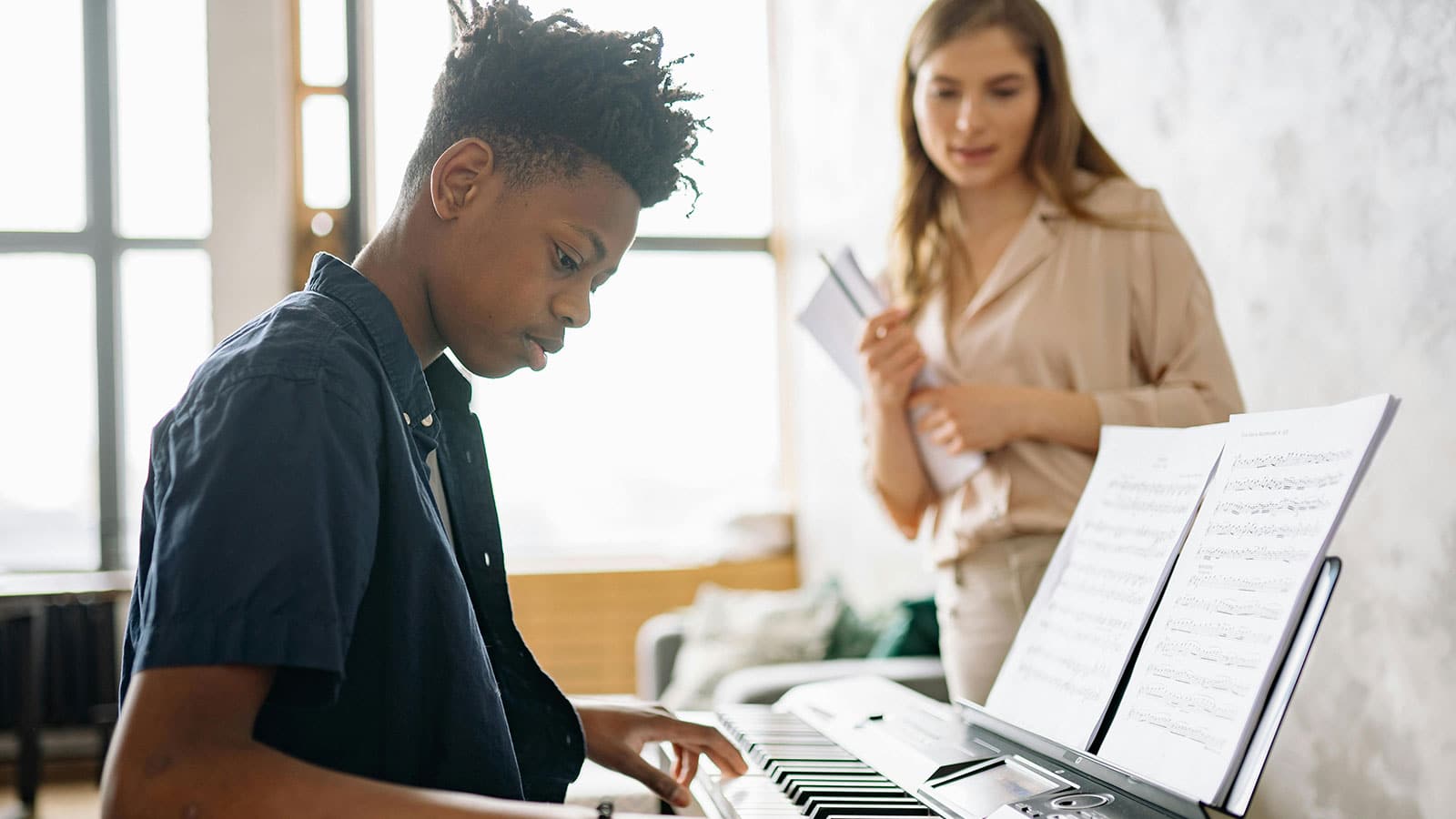Last Updated On: March 18th, 2025
In 1998 the governor of Georgia, convinced it would boost the academic achievement of children in his state, attempted to fund a program giving every child in the state a Mozart tape, in order to take advantage of the so-called “Mozart effect” where listening to Mozart increases intelligence. Unfortunately, this effect has been fairly thoroughly debunked, and the governor would have been better suited spending that money on any number of other childhood development programs. However, while merely listening to classical music as an infant may not have much impact on brain development, there are a number of ways music and instruments can help with academic development.
Merely listening to music may not do much for your brain, but learning to play an instrument is actually linked to a whole host of benefits in terms of memory, social skills, and math development. Playing music has been found in studies to increase memory in as little as four months. One theory of this link is that practicing and retaining songs or keyboard fingerings helps develop memory skills that can translate to other parts of life. Social skills have also been shown to be tied to music, another phenomenon that has some common-sense explanations. Music requires active listening, collaboration, and interacting with peers. Music’s ties to math are equally significant. Both rely on pattern recognition, intervals, and strong working memory. Of course, spending a few weeks taking guitar lessons will not magically turn a struggling student into an algebra whiz, but prolonged exposure to difficult music practice can expand a student’s understanding of the types of patterns and complex relationships that are necessary to grasp linear equations.
These direct links to academic performance and potential brain development are, of course, valuable, but there are a number of less direct ways in which we’ve found music study helpful for our students as well. One simple way music lessons or instruction can be useful is by getting kids into the habit of scheduling regular practice or review. Music takes discipline and self-evaluation. To improve at an instrument you need to practice regularly, maintain a schedule, and judge your own readiness for a lesson or performance. These are all skills that translate well to an academic environment where students need to memorize new vocabulary, practice skills, and assess readiness for evaluations such as tests or quizzes.
Another potential benefit of a student picking up an instrument is that musical ability can provide them with other elective or extra-curricular opportunities at school, be it in the school orchestra, jazz band, or even simply playing with friends. These groups can be a welcome break from academic stresses, help a child make friends, or boost the self-confidence of a child who otherwise struggles academically. For students who may not be having an easy time in school either academically or socially, having a time set aside each day where they can pursue a hobby they enjoy, or where they can shine and excel, can make a huge difference in their appreciation for school and help keep them engaged when they might otherwise be tempted to avoid school altogether. If school just feels like a chore, or a series of classes where the work is challenging and they never have a chance to excel, then students will cease to look forward to school and be less likely to remain enthusiastic about attending. If students know that every day they will get a chance to show their classmates how good they are at piano or have a chance to jam with their friends, then having to face that least-favorite class too may not seem so bad.
In addition to providing a confidence boost for students who might be struggling academically, music can also provide enrichment for students looking to go beyond the curriculum in classes in which they excel. Music can be a great subject for a science project from a student interested in how the brain processes sound or the physics of a musical instrument. Musical history or anthropology can also dovetail nicely with a student’s study of AP US History or other social studies classes, either in lessons provided by the teacher, or in independent study with their music teacher or history tutor. Music’s relationships to social, cultural, and scientific history are all ripe fields for inquiry for students looking to go the extra mile, or fun ways to make drier portions of a course more engaging for a student who might love music but not initially find their history course material so engrossing.
With the ways music can benefit a child’s educational development may not have been initially apparent, we hope this brief introduction to some of the potential benefits of a music education will encourage you to introduce your child to a musical instrument, or pick up one yourself!




















